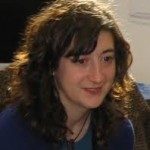Lien vers Pubmed [PMID] – 21687756
Lien DOI – 10.3389/fmicb.2010.00130
Front Microbiol 2010 ; 1(): 130
Circadian clock genes are vital features of eukaryotes that have evolved such that organisms can adapt to our planet’s rotation in order to anticipate the coming day or night as well as unfavorable seasons. This circadian clock uses oscillation as a timekeeping element. However, circadian clock mechanisms exist also in prokaryotes. The circadian clock of Cyanobacteria is well studied. It is regulated by a cluster of three genes: kaiA, kaiB, and kaiC. In this review, we will discuss the circadian system in cyanobacteria, and provide an overview and updated phylogenetic analysis of prokaryotic organisms that contain the main circadian genes. It is evident that the evolution of the kai genes has been influenced by lateral transfers but further and deeper studies are needed to get an in depth understanding of the exact evolutionary history of these genes. Interestingly, Legionella pneumophila an environmental bacterium and opportunistic human pathogen that parasitizes protozoa in fresh water environments also contains kaiB and kaiC, but their functions are not known. All of the residues described for the biochemical functions of the main pacemaker KaiC in Synechococcus elongatus are also conserved in the L. pneumophila KaiC protein.


